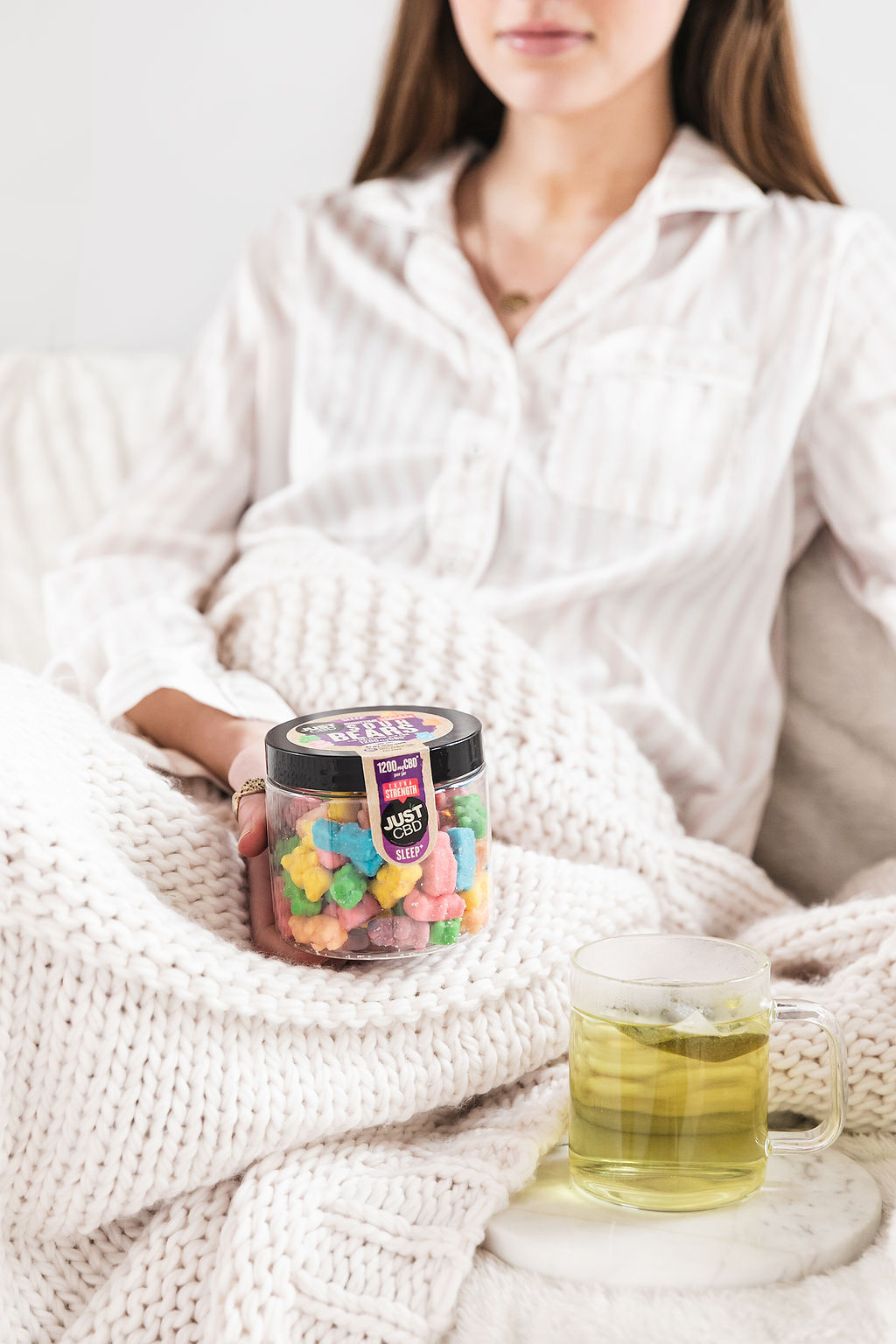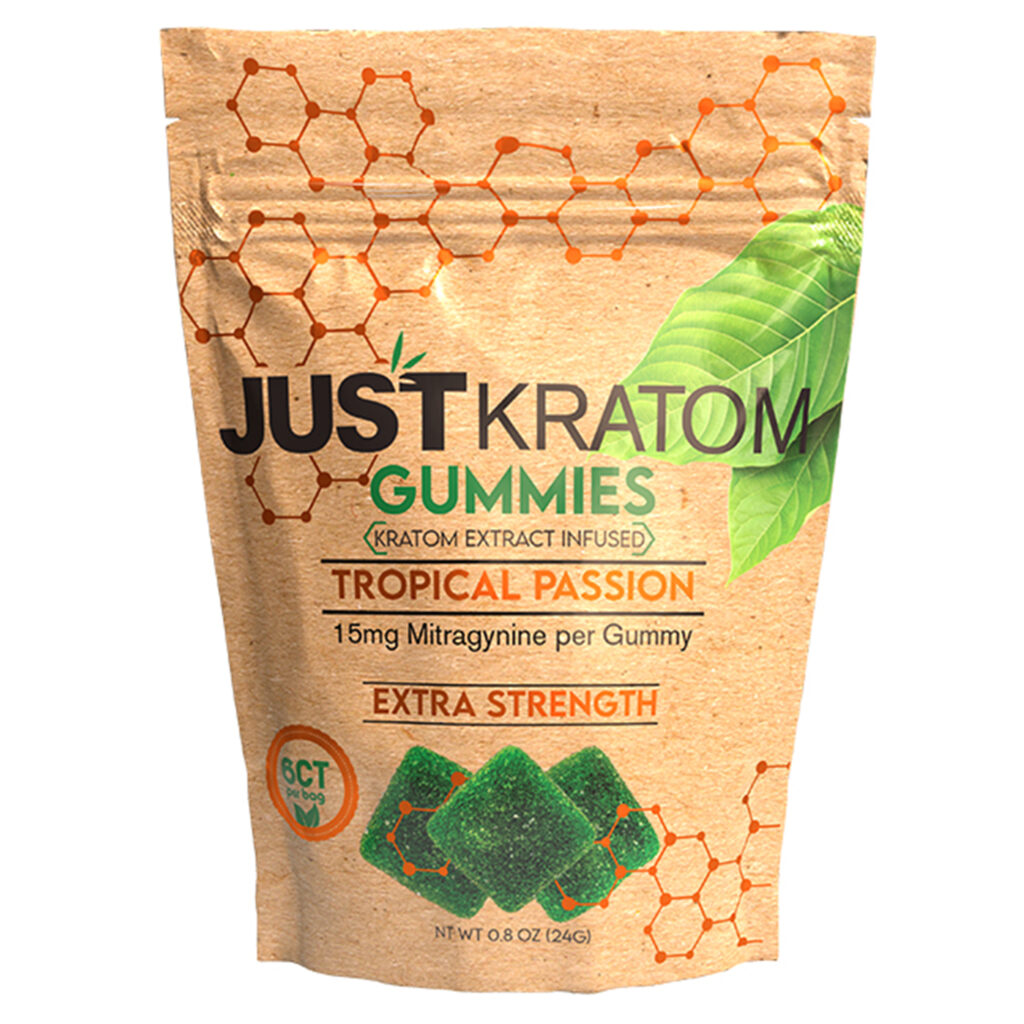Kratom Gummies and Alcohol Interactions
Kratom, an herbal supplement derived from the Mitragyna speciosa tree, has gained popularity for its potential mood-boosting, pain-relieving, and energizing effects. Available in various forms, including gummies, kratom is often consumed recreationally. However, combining kratom with alcohol raises concerns due to their potential interactions. This article explores the risks and consequences of mixing kratom gummies with alcohol, shedding light on how these substances can impact your health and well-being.
Potential Risks
Combining kratom gummies with alcohol can be dangerous due to their overlapping effects on the central nervous system. Both substances have depressant properties, meaning they slow down brain activity. Consuming them together can significantly amplify this effect, leading to an increased risk of drowsiness, dizziness, impaired coordination, and slowed reaction times. This heightened impairment can be particularly hazardous when engaging in activities that require alertness, such as driving or operating machinery.
Furthermore, both kratom and alcohol can interact with each other unpredictably, potentially leading to adverse reactions. Kratom’s effects are influenced by various factors, including dosage, individual metabolism, and tolerance. Alcohol can further complicate these interactions, making it difficult to predict the precise outcome of combining them. Individuals may experience nausea, vomiting, headaches, or even seizures as a result of this interaction.
In addition to immediate physical risks, mixing kratom gummies with alcohol can exacerbate long-term health problems. Both substances contribute to liver damage over time. Combining them increases the strain on the liver, potentially accelerating the development of liver disease. Moreover, prolonged use of kratom and alcohol can lead to addiction and dependence.
Increased Sedation
Consuming kratom gummies alongside alcohol can result in significantly increased sedation. Both substances depress the central nervous system, slowing down brain activity. When combined, their effects are amplified, leading to heightened drowsiness, dizziness, and impaired coordination. This combination poses a serious risk, especially when engaging in activities requiring alertness.
It’s crucial to recognize that the interaction between kratom and alcohol can be unpredictable. Individual responses vary based on factors like dosage, metabolism, and tolerance. Mixing these substances increases the likelihood of experiencing adverse reactions such as nausea, vomiting, headaches, or even seizures.
Respiratory Depression
Kratom gummies and alcohol are both depressants, meaning they slow down brain activity. When combined, their effects can be amplified, leading to serious health risks.

Here are some of the potential dangers of mixing kratom gummies with alcohol:
- Increased Sedation: Both substances cause drowsiness, and together they can lead to dangerously high levels of sedation.
- Impaired Coordination and Reaction Times: This combination can make it difficult to walk, talk, or react quickly, increasing the risk of accidents.
- Respiratory Depression: Both kratom and alcohol can suppress breathing. When mixed, this risk is significantly elevated, potentially leading to serious complications or death.
- Unpredictable Interactions: The way individuals react to combining kratom and alcohol varies widely. Some people may experience mild side effects, while others could have severe reactions.
Liver Damage
Combining kratom gummies with alcohol is a risky proposition due to their shared depressant effects on the central nervous system. Both substances slow down brain activity, and consuming them together can significantly enhance these effects, leading to amplified drowsiness, dizziness, and impaired coordination. This heightened impairment poses a considerable risk, particularly when engaging in activities demanding alertness.
Furthermore, kratom and alcohol interact unpredictably, making it difficult to anticipate the outcome of their combination. Individual responses vary based on factors like dosage, metabolism, and tolerance. The interaction can result in adverse reactions such as nausea, vomiting, headaches, or even seizures.
Over time, both kratom and alcohol contribute to liver damage. Combining them places an increased burden on the liver, potentially accelerating the development of liver disease.
It’s essential to prioritize safety and avoid mixing kratom gummies with alcohol. Choosing one substance over the other, or abstaining from both entirely, is always the safest option.

Addiction Potential
Mixing kratom gummies with alcohol can be extremely dangerous due to their combined effects on the central nervous system. Both substances are depressants, meaning they slow down brain activity. When consumed together, this effect is amplified, leading to increased drowsiness, dizziness, impaired coordination, and slowed reaction times.
This heightened impairment poses a serious risk, especially when engaging in activities requiring alertness, such as driving or operating machinery. The combination can also lead to respiratory depression, which is a dangerous slowing down of breathing that can be fatal.
Furthermore, kratom and alcohol interact unpredictably, making it difficult to anticipate how they will affect an individual. Some people may experience mild side effects, while others could have severe reactions, including nausea, vomiting, headaches, or even seizures.
Long-term use of kratom and alcohol can also contribute to addiction and dependence. Combining these substances increases the risk of developing these issues.
It’s important to note that kratom is not regulated by the FDA and its effects can vary greatly depending on the dosage, quality, and individual factors. Because of the potential risks associated with mixing kratom gummies with alcohol, it’s best to avoid combining them altogether.
Individual Variability
Combining kratom gummies with alcohol can be dangerous due to their overlapping effects on the central nervous system. Both substances have depressant properties, meaning they slow down brain activity. Consuming them together can significantly amplify this effect, leading to an increased risk of drowsiness, dizziness, impaired coordination, and slowed reaction times. This heightened impairment can be particularly hazardous when engaging in activities that require alertness, such as driving or operating machinery.
Furthermore, both kratom and alcohol can interact with each other unpredictably, potentially leading to adverse reactions. Kratom’s effects are influenced by various factors, including dosage, individual metabolism, and tolerance. Alcohol can further complicate these interactions, making it difficult to predict the precise outcome of combining them. Individuals may experience nausea, vomiting, headaches, or even seizures as a result of this interaction.
In addition to immediate physical risks, mixing kratom gummies with alcohol can exacerbate long-term health problems. Both substances contribute to liver damage over time. Combining them increases the strain on the liver, potentially accelerating the development of liver disease. Moreover, prolonged use of kratom and alcohol can lead to addiction and dependence.
It’s crucial to recognize that individual responses to mixing kratom and alcohol can vary greatly. Factors like dosage, metabolism, and tolerance play a significant role in determining how a person reacts.
Choosing one substance over the other, or abstaining from both entirely, is always the safest option when considering potential risks.
Metabolism Differences
Combining kratom gummies with alcohol can be dangerous due to their overlapping effects on the central nervous system. Both substances have depressant properties, meaning they slow down brain activity. Consuming them together can significantly amplify this effect, leading to an increased risk of drowsiness, dizziness, impaired coordination, and slowed reaction times. This heightened impairment can be particularly hazardous when engaging in activities that require alertness, such as driving or operating machinery.
Furthermore, both kratom and alcohol can interact with each other unpredictably, potentially leading to adverse reactions. Kratom’s effects are influenced by various factors, including dosage, individual metabolism, and tolerance. Alcohol can further complicate these interactions, making it difficult to predict the precise outcome of combining them. Individuals may experience nausea, vomiting, headaches, or even seizures as a result of this interaction.
In addition to immediate physical risks, mixing kratom gummies with alcohol can exacerbate long-term health problems. Both substances contribute to liver damage over time. Combining them increases the strain on the liver, potentially accelerating the development of liver disease. Moreover, prolonged use of kratom and alcohol can lead to addiction and dependence.
Tolerance Levels
Mixing kratom gummies with alcohol can be dangerous due to their combined effects on the central nervous system. Both substances have depressant properties, meaning they slow down brain activity. When consumed together, this effect is amplified, leading to increased drowsiness, dizziness, impaired coordination, and slowed reaction times.
This heightened impairment poses a serious risk, especially when engaging in activities requiring alertness, such as driving or operating machinery. The combination can also lead to respiratory depression, which is a dangerous slowing down of breathing that can be fatal.
Furthermore, kratom and alcohol interact unpredictably, making it difficult to anticipate how they will affect an individual. Some people may experience mild side effects, while others could have severe reactions, including nausea, vomiting, headaches, or even seizures.
Long-term use of kratom and alcohol can also contribute to addiction and dependence. Combining these substances increases the risk of developing these issues. It’s important to note that kratom is not regulated by the FDA and its effects can vary greatly depending on the dosage, quality, and individual factors. Because of the potential risks associated with mixing kratom gummies with alcohol, it’s best to avoid combining them altogether.
Prior Substance Use
Combining kratom gummies with alcohol can be incredibly dangerous due to their shared depressant effects on the central nervous system. Both substances slow down brain activity, and when consumed together, this effect is significantly amplified. This leads to increased drowsiness, dizziness, impaired coordination, and slowed reaction times.
This heightened impairment poses a serious risk, particularly when engaging in activities that require alertness, such as driving or operating machinery. The combination can also lead to respiratory depression, a dangerous slowing of breathing that can be fatal.
Adding to the danger is the unpredictable nature of how kratom and alcohol interact with each other. Individual responses vary based on factors like dosage, metabolism, and tolerance. Some people might experience mild side effects, while others could suffer severe reactions including nausea, vomiting, headaches, or even seizures.
Long-term use of both kratom and alcohol can contribute to addiction and dependence. Combining these substances further increases the risk of developing these issues.
It’s crucial to remember that kratom is not regulated by the FDA and its effects can vary greatly depending on the dosage, quality, and individual factors. Given the potential risks associated with mixing kratom gummies with alcohol, it’s always best to avoid combining them altogether.
Legal Considerations
The use of kratom, an herbal supplement derived from the Mitragyna speciosa tree, has risen in recent years. While proponents tout its potential benefits for mood elevation, pain relief, and energy boosting, mixing kratom with alcohol raises serious legal and health concerns.
Kratom Legality
Kratom’s legal status varies greatly depending on your location. In some countries, it is entirely legal, while in others, it is strictly prohibited. Many U.S. states have implemented their own regulations, with some banning kratom outright and others restricting its sale or use.
The legal landscape surrounding kratom is constantly evolving, making it crucial to research the specific laws in your jurisdiction. Using kratom where it is illegal can carry legal penalties, including fines or imprisonment.
Federal vs. State Regulations
Navigating the legal considerations of kratom gummies and alcohol consumption requires understanding the complexities of federal and state regulations. While kratom is not currently classified as a controlled substance at the federal level in the United States, its legal status varies significantly from state to state.
Some states have outright banned kratom, while others have implemented restrictions on its sale, possession, or use. It’s crucial to research the specific laws governing kratom in your state to ensure compliance and avoid potential legal ramifications.
Alcohol, on the other hand, is regulated at both the federal and state levels. Federal regulations govern the production, distribution, and sale of alcohol, while states have their own laws regarding its consumption and possession.
The combination of kratom gummies with alcohol further complicates legal considerations, as many jurisdictions may not have specific laws addressing this particular mixture. In such cases, existing regulations governing individual substances might be applied.
Alcohol Laws
Laws regarding kratom and alcohol vary greatly depending on your location. Kratom’s legal status is complex and ever-changing, with some countries banning it entirely while others allow its sale and use.
In the United States, the federal government does not currently classify kratom as a controlled substance, but many individual states have implemented their own regulations, ranging from complete bans to restrictions on sales or possession.
Alcohol is regulated at both the federal and state levels in the US. States have their own specific laws regarding alcohol consumption, possession, and sale.
It’s essential to research the specific laws in your area regarding both kratom and alcohol, as mixing them could lead to legal consequences depending on your jurisdiction.
Recommendations
Kratom gummies and alcohol are both substances that can have significant effects on the body. When combined, their potential for harm increases dramatically. It is important to understand the risks involved before considering using these substances together.
Combining kratom and alcohol can lead to a dangerous increase in sedation, dizziness, and impaired coordination. This heightened impairment can make it difficult to perform everyday tasks safely, especially those that require alertness, such as driving or operating machinery. The combination can also suppress breathing, putting individuals at risk of respiratory depression.
Furthermore, kratom’s effects are influenced by a variety of factors, including dosage, individual metabolism, and tolerance. Alcohol can further complicate these interactions, making it difficult to predict how a person will react when consuming both substances together.

The unpredictable nature of this combination means that individuals could experience unexpected and potentially severe side effects, ranging from nausea and vomiting to seizures.
Kratom is not regulated by the FDA, so its quality and potency can vary widely. This adds another layer of risk when combined with alcohol, as it’s difficult to know exactly how much kratom is present in a given gummy or how it will interact with alcohol.
The potential for adverse reactions and serious health consequences makes mixing kratom gummies with alcohol a highly risky proposition. Choosing one substance over the other, or abstaining from both altogether, is always the safest option.
Safety Precautions
Combining kratom gummies with alcohol can be extremely dangerous due to their combined effects on the central nervous system.
Both substances act as depressants, slowing down brain activity. When consumed together, this effect is amplified, leading to increased drowsiness, dizziness, impaired coordination, and slowed reaction times. This heightened impairment poses a serious risk, especially when engaging in activities that require alertness, such as driving or operating machinery. The combination can also lead to respiratory depression, which is a dangerous slowing down of breathing that can be fatal.
Furthermore, kratom and alcohol interact unpredictably, making it difficult to anticipate how they will affect an individual. Some people may experience mild side effects, while others could have severe reactions, including nausea, vomiting, headaches, or even seizures.
Long-term use of both kratom and alcohol can contribute to addiction and dependence. Combining these substances increases the risk of developing these issues. It’s important to remember that kratom is not regulated by the FDA and its effects can vary greatly depending on the dosage, quality, and individual factors. Because of the potential risks associated with mixing kratom gummies with alcohol, it’s always best to avoid combining them altogether.
If you are considering using kratom, please consult with a healthcare professional to discuss the potential risks and benefits.
Consult a Healthcare Professional
It is important to note that kratom is not currently regulated by the FDA. Its safety and long-term effects are not fully understood.
Consulting with a healthcare professional is crucial before using kratom, especially if you have existing health conditions or are taking other medications. They can provide personalized advice based on your individual circumstances and help you make informed decisions about your health.
Start with Low Doses
When experimenting with substances like kratom, it’s crucial to start low and go slow. This approach allows your body to adjust gradually, helping you better understand how your system responds and minimizing the risk of adverse reactions.
Remember to listen to your body and stop if you experience any discomfort or unexpected side effects.
Monitor Effects Closely
Here are some recommendations based on the provided text:
* **Avoid Mixing Kratom Gummies with Alcohol:** The combined effects can be dangerous, leading to increased sedation, impaired coordination, slowed reaction times, and potentially fatal respiratory depression.
* **Research Local Laws:** Kratom’s legal status varies significantly depending on your location. Be sure to understand the laws in your area regarding both kratom and alcohol before consuming either substance.
* **Consult a Healthcare Professional:** If you are considering using kratom, speak with a doctor or pharmacist to discuss potential risks, interactions with medications, and appropriate dosages.
* **Start Low and Go Slow:** If you choose to use kratom, begin with a small dose and gradually increase it as needed, paying close attention to your body’s response.
* **Be Aware of Individual Differences:** Responses to kratom can vary greatly based on factors like metabolism, tolerance, and individual health conditions.
Remember, prioritizing your safety and well-being is paramount.
Alternatives to Mixing Substances
Kratom gummies and alcohol are both substances that can have a significant impact on the body. When combined, their effects can be amplified, leading to potentially dangerous consequences.
Here are some alternatives to mixing kratom gummies with alcohol:
- **Enjoy Kratom Alone:** If you choose to consume kratom, do so separately from alcohol. This allows you to experience its effects without the added risks associated with combining it with alcohol.
- Explore Other Relaxation Techniques:
- Meditation: Find a quiet space and focus on your breath or a calming mantra.
Remember, making informed decisions about substance use is crucial for your health and well-being. If you have concerns about kratom use or alcohol consumption, reach out to a healthcare professional for guidance and support.
Order Kratom Gummies infused with flavor
- Dermal Fillers Near Englefield Green, Surrey - September 22, 2025
- Is CBD Vaping The Best Option For Quick Anxiety Relief? - September 21, 2025
- Collagen Induction Therapy In Cobham, Surrey - September 21, 2025
